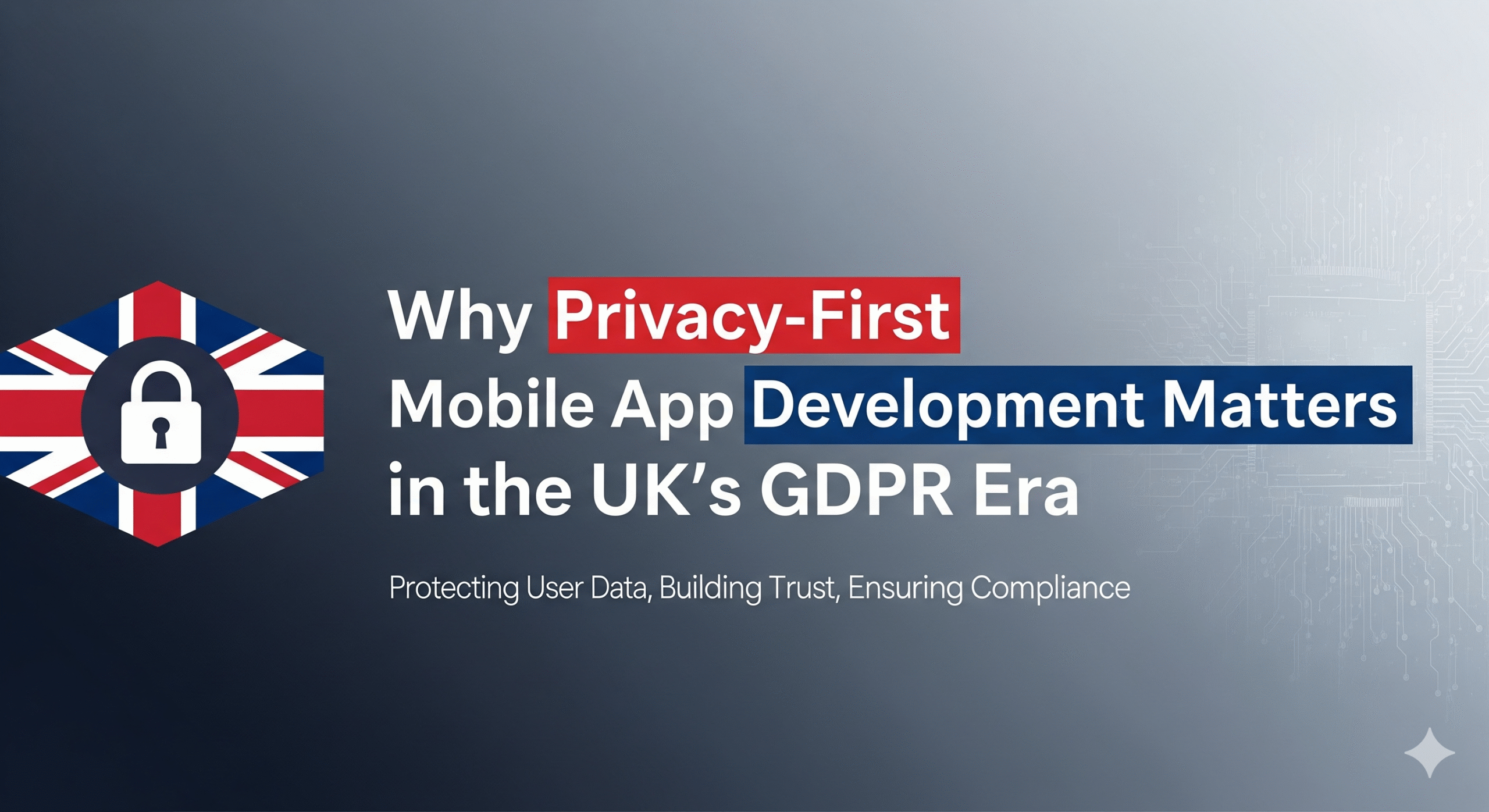In today’s digital-first world, mobile apps have become an essential part of our daily lives. From online banking and healthcare services to shopping and entertainment, mobile applications store and process massive amounts of sensitive data. With the rise of data breaches and growing concerns about privacy, mobile application developers in the UK face a critical responsibility: building apps that prioritize user privacy.
This responsibility has become even more important since the introduction of the General Data Protection Regulation (GDPR). For businesses and every mobile app development company in the UK, adopting a privacy-first approach is no longer optional—it’s a legal and ethical requirement.
In this article, we’ll explore why privacy-first mobile app development matters in the UK’s GDPR era, the benefits it brings, and how businesses can ensure compliance while maintaining user trust.
The GDPR Era: What It Means for Mobile Apps
The GDPR, enforced since 2018, is one of the world’s strictest data protection laws. It places clear guidelines on how organizations can collect, process, and store user data. For app development, this means companies must be transparent, secure, and accountable when handling customer information.
Failure to comply can lead to:
- Hefty fines of up to 4% of global annual turnover.
- Loss of consumer trust, which can be devastating in competitive markets.
- Reputational damage, which can take years to recover from.
For UK businesses, this regulation means every mobile app needs to be designed with data protection principles at its core. Simply put, users want more control over their information—and companies must deliver it.
Why Privacy-First Mobile App Development Matters
1. Building Trust with Users
Trust is the foundation of any successful app. If users feel that their data is unsafe, they will quickly uninstall and move to competitors. A privacy-first approach reassures customers that their personal information is handled responsibly, strengthening brand loyalty.
2. Competitive Advantage
Many industries in the UK are saturated with apps offering similar features. What often sets an app apart is how it values user privacy. Businesses that invest in secure and transparent app development practices stand out as trustworthy brands, giving them a competitive edge.
3. Avoiding Legal and Financial Risks
Non-compliance with GDPR doesn’t just risk fines—it can also lead to lawsuits and legal challenges. For any mobile app development company, ensuring apps meet regulatory standards helps avoid costly mistakes.
4. Enhancing Long-Term Growth
Privacy-first strategies may seem expensive at the start, but they ensure long-term sustainability. By reducing risks of data leaks and scandals, businesses create a stable foundation for growth.
How Mobile Application Developers Can Ensure GDPR Compliance
Adopting a privacy-first strategy isn’t just about adding security features at the end of development. It must be integrated into the entire lifecycle of mobile app development. Here’s how mobile application developers can achieve this:
- Data Minimization
Collect only the data necessary for the app to function. For example, a weather app doesn’t need access to a user’s contact list. - Clear Consent Mechanisms
Apps must clearly ask for consent before collecting personal data. Users should be able to easily opt in or out at any time. - Strong Encryption
End-to-end encryption ensures that sensitive data like payment details or health records are protected from unauthorized access. - Transparency
Inform users exactly how their data will be used through simple, easy-to-understand privacy policies. Avoid legal jargon that confuses users. - Regular Audits
A mobile app development company should perform regular compliance checks and security audits to ensure data safety at all times.
Real-World Impact of Privacy-First Development in the UK
Let’s consider the UK’s fintech and healthcare industries. Both sectors rely heavily on mobile app development, processing financial and medical data that must remain secure. By adopting privacy-first strategies:
- Fintech apps protect users from fraud and identity theft.
- Healthcare apps safeguard patient records, ensuring compliance with both GDPR and NHS guidelines.
These examples highlight how privacy-first design is not just about avoiding penalties but also about delivering genuine value to users.
The Role of a Mobile App Development Company in Today’s Market
In the UK, businesses often partner with a mobile app development company to build tailored solutions. Choosing the right partner is crucial because privacy-first design requires both technical expertise and regulatory knowledge. The best development partners:
- Employ skilled mobile application developers trained in GDPR compliance.
- Integrate privacy features like biometric logins, two-factor authentication, and secure APIs.
- Stay updated with evolving data protection laws to keep apps future-proof.
By working with the right experts, businesses can ensure their apps are secure, compliant, and trusted by users.
Conclusion
In the UK’s GDPR era, mobile app development cannot ignore the importance of privacy. Every mobile app development company and every team of mobile application developers must recognize that safeguarding user data is the foundation of long-term success.
A privacy-first approach is more than compliance—it’s about building trust, enhancing user experiences, and securing business growth. In today’s competitive digital market, businesses that prioritize privacy in app development will not only meet regulations but also win the loyalty of their users.



